The Irony
Continues
In ‘Broker,’ Family Abandonment Leads to Family Creation

WRITTEN BY
Ahn Soong-beum,
film critic, professor at Kyung Hee University and director of the K-Cuture·Story Contents Research Institute
Photos courtesy of
CJ ENM and ZIP CINEMA
“Broker” is a Korean film that was released on June 8, 2022. “Broker” was filmed and directed in Korea by Japanese director Hirokazu Koreeda, and has been attracting attention all around the world. The film was selected to compete at the 75th Cannes Film Festival, in which actor Song Kang-ho received the award for Best Actor. The movie tells the road trip journey of people who met in front of a baby box and demands serious reflection on the word “family.”
If there was only one word needed to understand Hirokazu Koreeda’s films, it would be “irony.” “Broker” is the story of a woman who couldn’t be a mother because she couldn’t give up her baby. People won’t understand that sentence until they actually watch the movie, yet the ironic sentence is an accurate summary of “Broker.”
The Beginning of the Narrative: Abandonment of Family
“Broker” is another one of Hirokazu Koreeda’s films that falls under the extension of the film world Koreeda has created. The irony of “Broker” comes from the discrepancy between the superficial intentions of people who come together as brokers for human trafficking and the actual practice. As is well known, Hirokazu Koreeda’s film material is always centered on family while becoming a family is the driving force of his film narrative.
However, in many cases, the narrative of becoming a family actually begins with the abandonment of family. The narrative of the abandonment of family in “Nobody Knows” is shown explicitly through a mother’s note. On the other hand, people have to guess the context of the abandonment of family in “Shoplifters” as it occurs on the back side of the narrative before the movie even starts. The narrative of the abandonment of family in “Broker” has characteristics from both “Nobody Knows” and “Shoplifters.” The process by which irony occurs in “Broker” can also be interpreted in relation to these characteristics.
The scene where So-young (played by Lee Ji-eun) abandons her baby born from an unwanted pregnancy appears at the beginning of the film. However, the true starting point of the narrative (the abandonment of family) in “Broker” requires a reconstruction of the past. So-young was abandoned by her family at a very young age and eventually turned to a life of prostitution while living on the street.
Sang-hyeon (played by Song Kang-ho) is a human trafficking broker who dreams of turning his life around by selling babies abandoned in baby boxes rather than running a laundromat. Sang-hyeon’s wife abandoned him, which left him in a situation where his relationship with his beloved daughter was severed.
Dong-soo (played by Gang Dong-won) is another broker who worked under the guise of being involved with a baby box ministry group. However, he has a past where he grew up in an orphanage hoping that his mother would one day return for him.
So-young, Sang-hyeon, and Dong-soo were abandoned by their families before the movie even started. They had to accept the fact that, contrary to their wishes, becoming a family was an impossible dream. They each experienced the pain of being separated from their families in their own different ways.
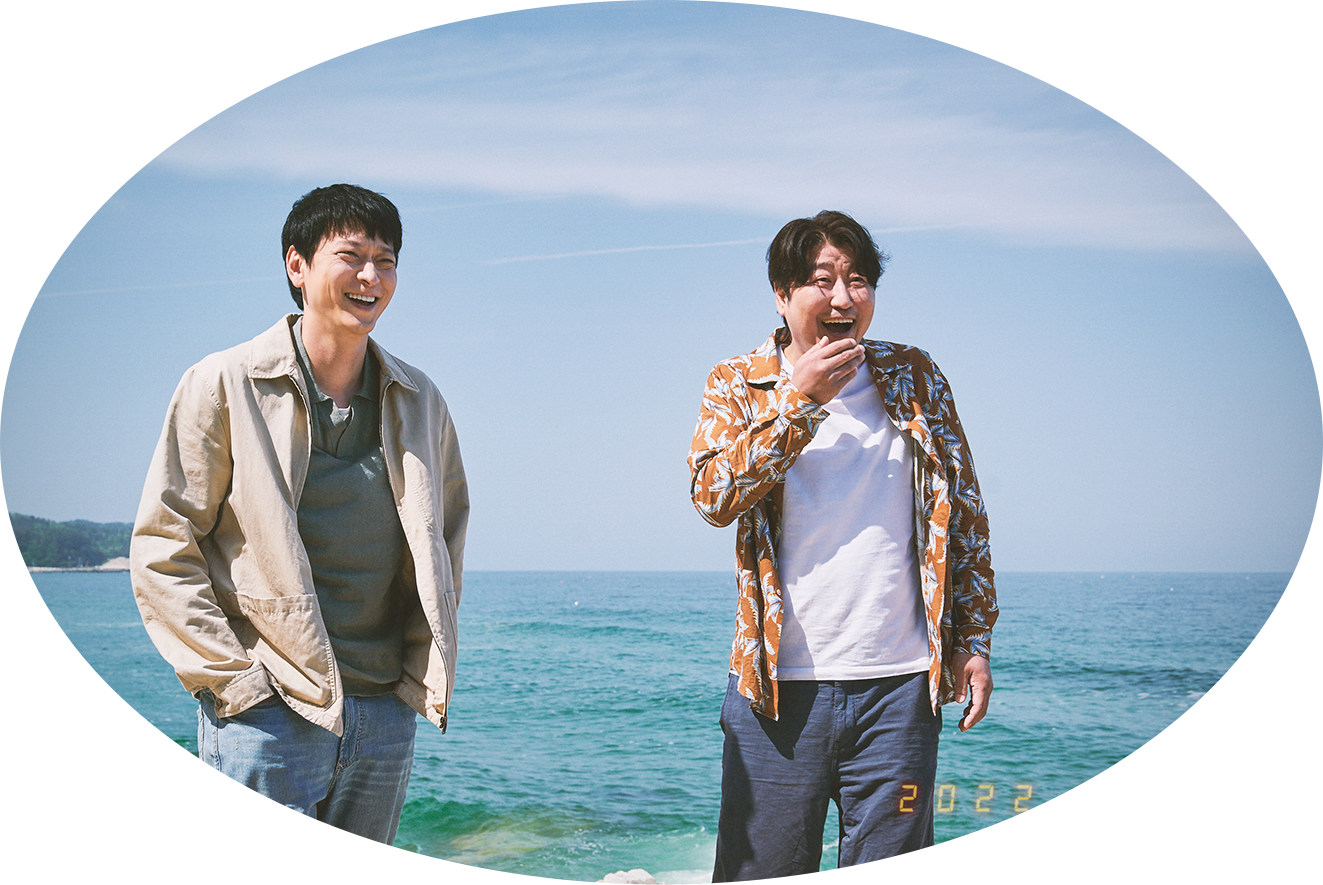
The actors of “Broker” at work.
The End of the Journey: Becoming a Family
The direct moment for “Broker”’s ironic narrative occurs when So-young returns to retrieve her baby and decides to join Sang-hyeon and Dong-soo on their journey. This is the start for those who suffered from scars caused by the abandonment of family.
At the beginning of the film, they share the wish that Woo-sung (So-young’s baby) would have the chance to grow up in a better environment. However, that statement is a poor excuse for justifying human trafficking. In reality, it sounds as though they are looking for adoptive parents who are willing to pay them money for the baby.
It is through the process of illegally selling babies that the intention of the superficial narrative (the abandonment of family) begins to move towards the notion of becoming a family. This is when the detectives join the plot. The two detectives, Soo-jin (played by Bae Doona) and Detective Lee (played by Lee Jooyoung), play the role of observers. However, they appear to be passive brokers working under the pretext of arresting people for human trafficking.
Towards the end of the film, Soo-jin becomes the decisive pivotal character in the birth of the quasi-family. This is the opposite of the characters’ initial actions in that they become brokers that help people become a family.
As such, “Broker” is the story of a journey that begins with the purpose of the abandonment of family and ends with the unintentional miracle of becoming a family. The vast gap becomes filled as the dissonance between characters from different backgrounds progresses into a strange state of harmony.
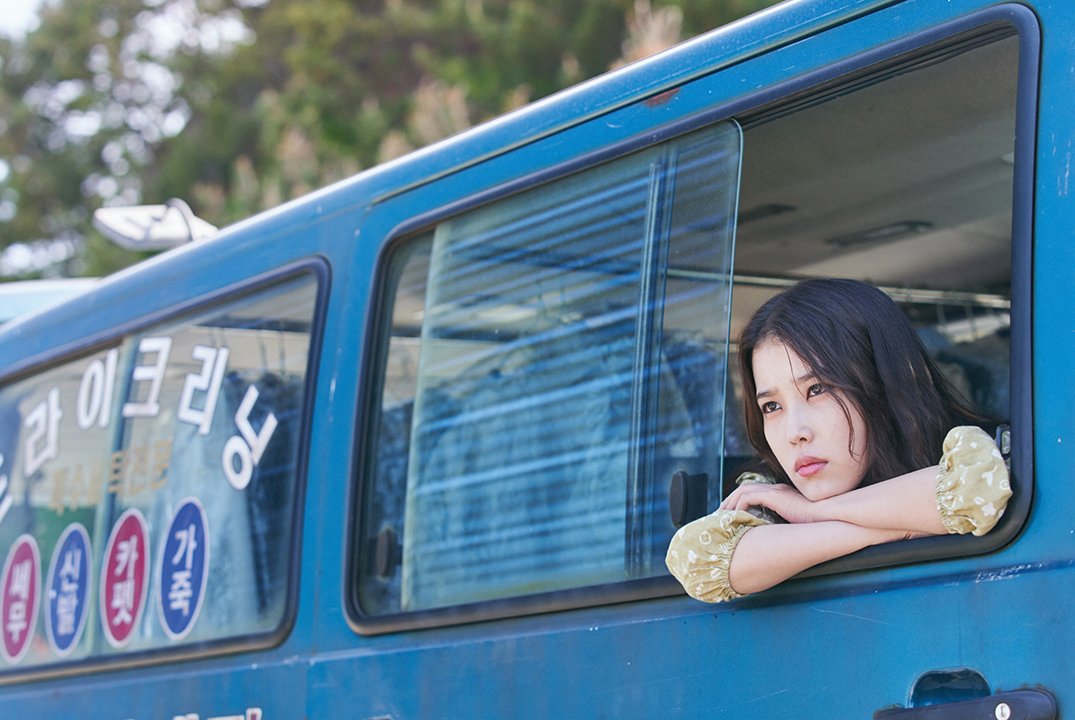
A scene from "Broker.”
Of course, some might call the way Hirokazu Koreeda ends his films an emotional unity of conflict. For example, Dong-soo saying “You can be happy with us now” to Woo-sung may not be realistic when confronted with their situation. Sang-hyeon and Dong-soo committed serious crimes such as murder and human trafficking and will therefore never be accepted by society.
However, Hirokazu Koreeda arranges moments where the audience can be free from worrying about the boundary between legal and illegal. For example, after the scene at the Wolmi-do ferris wheel and passing through Busan and Uljin, So-young is reborn as a mother and Dong-soo a father and husband. Afterwards, in the motel scene, So-young and Dong-soo say “Thank you for being born” to baby Woo-sung. This is when the film asks the viewer to think about the true meaning of becoming a family.
Their true intentions are revealed through their interactions with the baby, which brings an end to the discussion surrounding the legality/illegality of human trafficking. Instead, the focus is placed on their reflexive attitude of finding the most ethical approach.
The ending scene in “Broker” shows the inside of Sang-hyeon’s car. Instant photos are seen swaying beneath the rear view mirror, serving as a visible memory of the bright expressions of those who have achieved emotional unity. The instant photos leave it up to the viewer to decide whether the magical moment of becoming a family can be realized in everyday life.
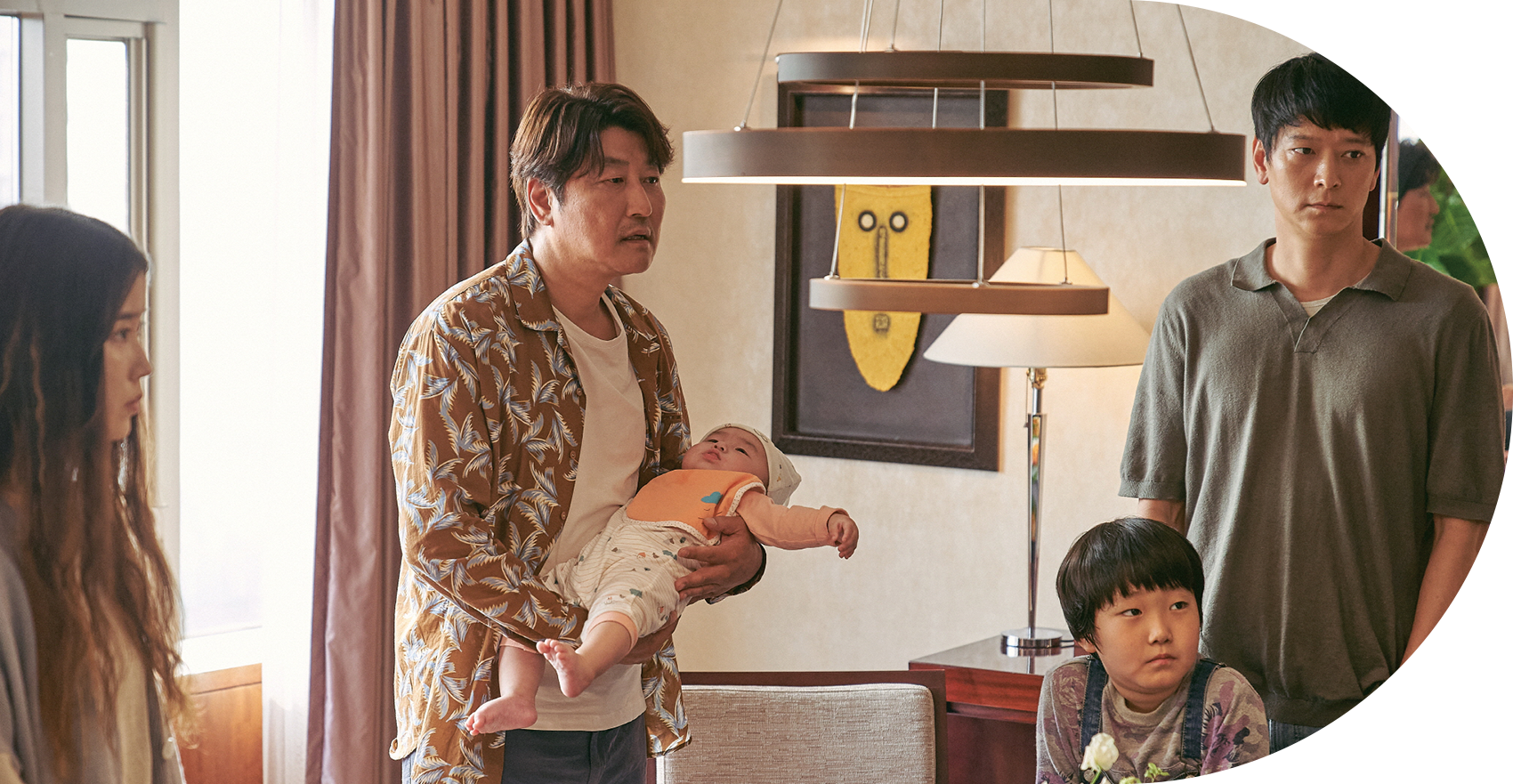
A scene from "Broker.”
Other Articles
-

Special Ⅰ Joy on the Road
-

Special Ⅱ Rethinking
the Tourist Rest Area -

Trend A Time-honored Taste
-

Hidden View An Open Field
in the Mountains -
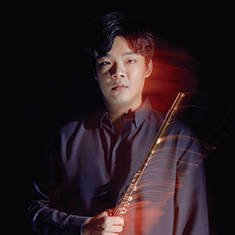
Interview Making New History
-
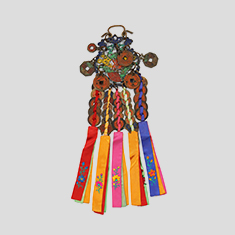
Art of Detail Delightful Decorations
-

Film & TV The Irony Continues
-

Collaboration Reality Through ‘Fake Art’
-
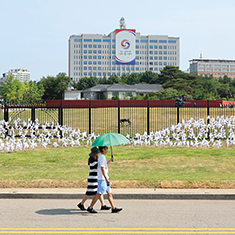
Current Korea The Yongsan Era Begins
-
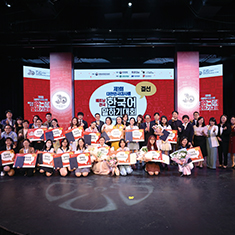
Global Korea KCC Vietnam’s
1st Speech Contest
